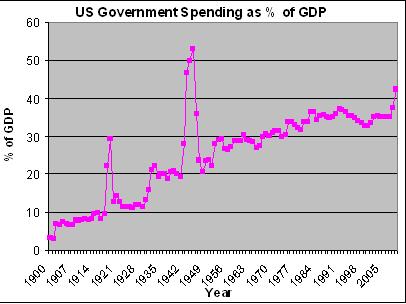Posted by Jake on Sunday, December 18, 2011 with 2 comments | Labels: Big Society, inequality, Inflation, Liebrary, pay, pensions
Pensions are deferred pay. Pensions are not charity, nor a handout, nor any other form of benevolence. Your employer, private or public sector, holds back some of what it owes you for your labour and pays it to you when you are retired.
Pensions are paid for by corporate profits (private sector) or taxes (public sector).
 Cutting pensions is a pay cut on employees which allows companies to increase their profits or hand them to shareholders, and governments to cut taxes.
Cutting pensions is a pay cut on employees which allows companies to increase their profits or hand them to shareholders, and governments to cut taxes.Is the current Banking Crisis a reason for special measures on pensions? The reality is mature economies recover from crises. To see the evidence, take a look at what happened to the US economy in the last century, particularly after the two World Wars.
Two World Wars required massive spending, first to destroy and then to rebuild nations. But government spending quickly returned to its original trend.
The Banking Crisis required massive spending to bail out the banks. There is no reason to think that cutting pensions is needed for the recovery to happen. Apart from anything else, the reduced pensions costs will not have any impact in time for the current crisis.
Are pension being cut because they were ballooning out of control? The government's own figures show this is not the case.

Pensions are being cut to reduce the cost to companies in the private sector, and to reduce taxes for the public sector.
The Banking Crisis is being used as a smokescreen to increase inequality in the most unequal country in western Europe.
Reducing pensions would be a rip-off that is imposed on current and future generations.














Surely you are starting off with a very particular definition of what a pension is here. It can also be seen as separate from the reward for labour, as a social safety net to support people who aren't working when they aren't fit to work. It should be considered separately for empirical reasons but it should also be considered separately because you can compare wages against other countries a lot more easily without including pension payments.
ReplyDeleteIsn't this the same argument as the 50% tax rate in that the retained or increased (abstractly considered) profits of the corporate sector is portrayed as good in that these are the people who create jobs?...the multiplier effect is particularly present when it comes to the increased wealth of those who ironically already have lots of it. I'm not saying that this analysis is completely accurate but it certainly unsettles some of the basic assumptions underlying your arguments.
ReplyDelete